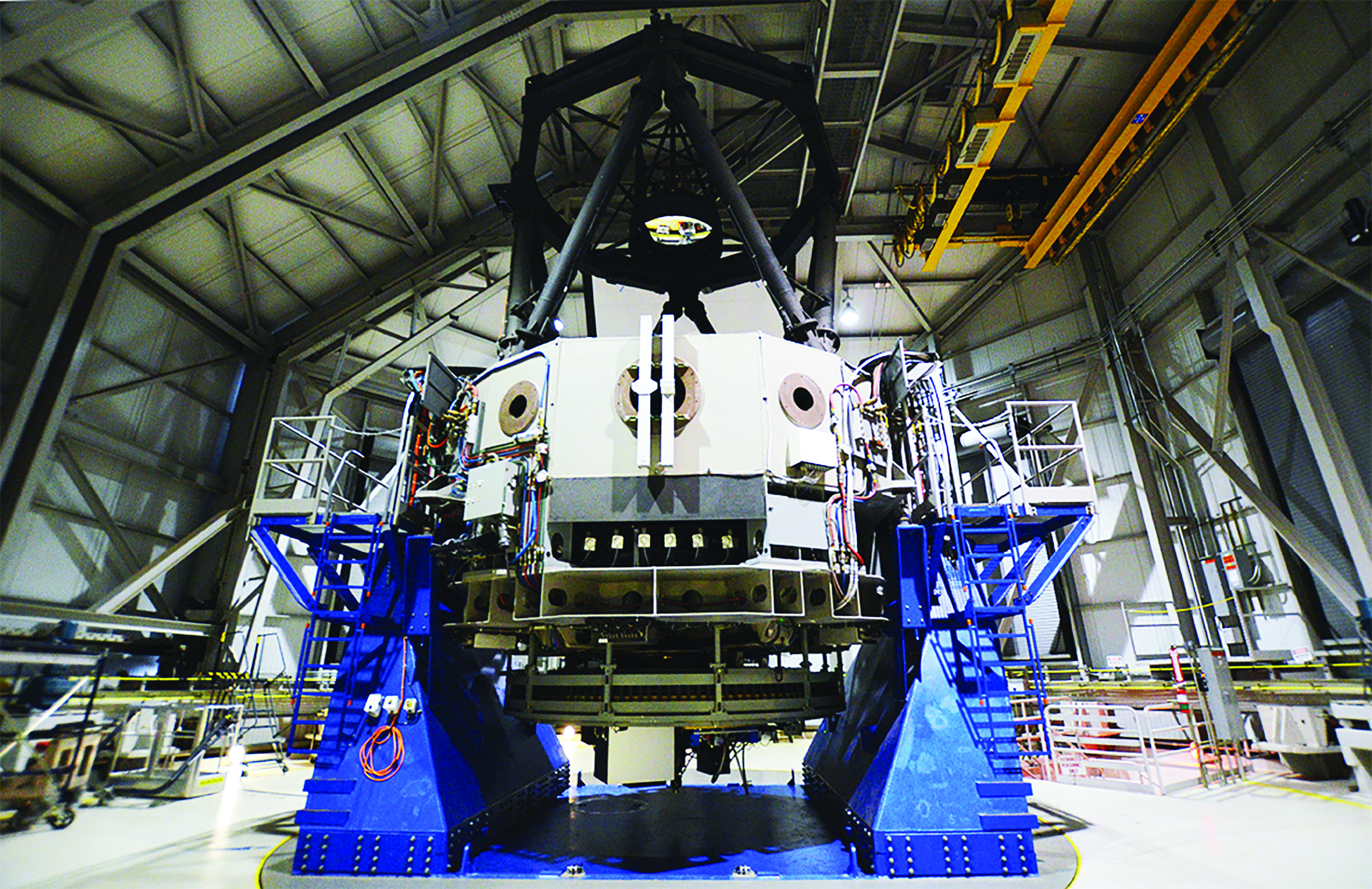With eye on future, Lowell Observatory shaves jobs, focuses science

Selling time on the 4.3-meter telescope at Lowell Observatory is part of the strategy for increasing revenues for the cash-strapped facility.
(Photo by Sarah Gilbert/Lowell Observatory.)

Staff astronomers at Lowell Observatory learned on 9 October that they would lose tenure effective 1 January 2026. The 130-year-old independent observatory in Flagstaff, Arizona, is switching the dozen scientists’ employment to be contingent on their bringing in grants; they were given two and a half months to reconfigure existing grants to pay their salaries, rustle up new funding, or seek other employment.
Eliminating tenure is part of a larger restructuring plan that, observatory director Amanda Bosh says, sets Lowell on course for long-term success. “Organizations are always working on their financial sustainability,” she says. “This was a difficult decision. If I had other options, I would have pursued them.”
Tenure has been increasingly debated in recent years. In 2023, Florida introduced post-tenure reviews that effectively eliminate tenure in the state’s public universities. Many scholars worry that removing tenure restricts academic freedom. The changes at Lowell are a morale blow for the broader astronomy community, says Diego Muñoz, an assistant professor of astronomy at Northern Arizona University who collaborates with Lowell astronomers.
The observatory is also narrowing its in-house scientific focus to two areas of existing strength: planetary defense and exoplanets.
A venerable observatory
The observatory is perhaps best known for its 1912 radial velocity measurements of a spiral nebula, which were the first observations of the expanding universe, and for the 1930 discovery of Pluto. The first identification of water on an exoplanet was made in 2007 by a Lowell astronomer.
Today, the observatory’s 4.3-meter Lowell Discovery Telescope, which saw first light in 2012, and several smaller telescopes are used by both in-house astronomers and institutional partners for research in planetary science, galactic and stellar astrophysics, extragalactic astronomy, and other fields. Some of the in-house astronomers rely on other ground- and space-based facilities.
Although Lowell’s staff astronomers have always been encouraged to contribute to their salaries through grants, their pay was guaranteed. Historically, they collectively covered around a third of their salaries through grants, according to Bosh. In 2024, that amounted to about $2.3 million. But with grant money from federal agencies getting tighter, the burden increasingly falls on the observatory, says Bosh. “That is unsustainable.”
Lisa Prato, who joined Lowell in 2004, studies young binary stars. She says she has been successful at pulling in grants, which she uses to conduct research in areas that have passed through peer review. Support from the observatory, she notes, has allowed her to explore new topics. And, she says, “I’ve been happy to know that if I were to have a dry year, the observatory had my back.”
Prato says that her funding will run out a few weeks into the new year. “I’m exploring multiple opportunities,” she says. Not only will she and others whose grants are running out be effectively unemployed, but unless they can bring in three-quarters of their salaries at Lowell through grants, they will also lose their health insurance in 2027. Several Lowell astronomers told Physics Today that they wouldn’t have taken jobs at the observatory without the salary guarantee. (They requested anonymity out of fear of retribution.)
A blow to science and morale
Gerard van Belle joined the observatory in 2011 and became its science director in early 2024. On 6 October, he quit in part to protest the decision to revoke tenure and switch astronomers to external funding that they bring in themselves. As a member of the executive team, he says, “I couldn’t in good conscience be part of that decision.”

The visitors’ center at Lowell Observatory opened in November 2024.
(Photo by Abe Snider/Lowell Observatory.)

Bosh declined to explain the observatory’s financial predicament. She says that minus the current uncertainties surrounding federal funding, “Lowell might not be in this situation.” Based on a presentation by Bosh from last June, Lowell’s annual running costs are about $22 million, with a deficit of roughly $8.5 million, says van Belle.
Although the threats to federal funding are an “aggravating factor, they are not the root cause,” says van Belle. Instead, he and other current and former Lowell astronomers and members of the observatory’s advisory board point to a new visitors’ center and the construction of the Lowell Discovery Telescope, with twin tabs of $53 million; delays and rising costs from the 2008 economic crash and COVID-19; and long-term mismanagement.
Van Belle predicts that most of the staff astronomers will leave within a year. Some will leave because they have no external funding. And the ones with grants, he says, will “be attractive and will move to greener pastures.”
A road to recovery
Bosh acknowledges that Lowell science could see a downturn in the near term. But, she says, “We have a plan that we believe will see us through this period of uncertainty.”
That plan includes focusing resources on the strategic areas of planetary defense—tracking potentially hazardous asteroids and comets—and exoplanet research, both of which the observatory judges to have a good chance of getting federal funding. Each area will be led by an in-house astronomer whose salary is covered in roughly equal parts by the observatory and grants. Externally funded independent scientists and emeritus astronomers will retain access to observatory facilities, including office space, email, and telescopes. And the observatory will continue hosting postdoctoral astronomers.
Over time, Bosh says, the plan is to establish endowed chairs, akin to those in university departments, as a way of building back the in-house science capacity. And the observatory will emphasize building revenue streams by, among other measures, attracting more visitors and selling more time on the Lowell Discovery Telescope to academic, military, and commercial customers.
Lowell’s dual mission of doing and disseminating science is not changing, says Bosh. “As a scientist, and as a human being, I feel strongly that support for basic research is really important both to learn something and to feed our souls.” Lowell has faced challenging times in the past, she says. “I think we will get through this too.”





